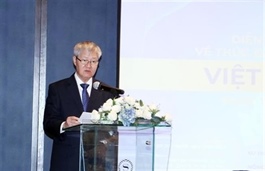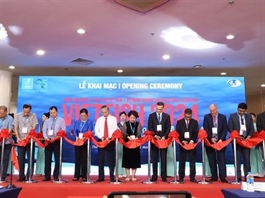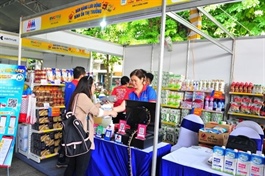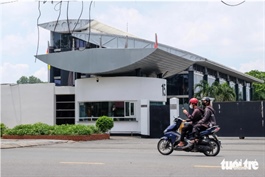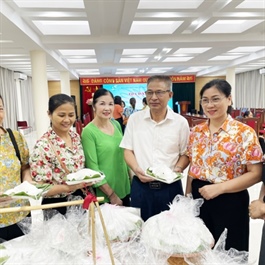Vietnamese textile industry could benefit from disruptions in Bangladesh, but long-term strategies remain crucial
Vietnamese textile industry could benefit from disruptions in Bangladesh, but long-term strategies remain crucial
Bangladesh's ongoing political instability has led to widespread disruptions in the country’s textile industry, which contributes nearly 90 per cent of its export turnover.
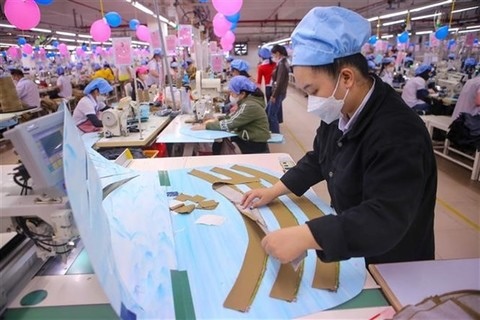
Garment workers at the 29/3 Textile Joint Stock Company in Đà Nẵng City. Vietnamese enterprises are advised to focus on enhancing their competitiveness and pursuing long-term strategies.— VNA/VNS Photo |
According to the Việt Nam Textile and Apparel Association (Vitas), this turmoil could prompt international buyers to consider shifting their orders to other countries, potentially offering certain advantages to Vietnamese enterprises.
Since the beginning of August, a series of protests and violent incidents have severely impacted Bangladesh's production activities, forcing many textile factories to close temporarily.
The Bangladesh Textile Mills Association, citing the local Business Standard, reported that all member factories were shut down for three days, following a government-mandated holiday. As a result, many Bangladeshi textile exporters have witnessed a 25 to 40 per cent decline in orders.
The reduction in orders is not solely due to internal conflicts, but also stems from decreased demand in major markets such as Western Europe and Russia, where inflation has curtailed consumer spending. Bangladesh, the world's second-largest textile exporter after China, faces additional challenges as it attempts to maintain its market share.
Approximately 80 per cent of Bangladesh's textile exports are destined for North America and the European Union. The country’s primary exports include garments for leading European fashion brands such as H&M and Zara. However, the ongoing political unrest and rising labour costs due to demands for higher wages are undermining Bangladesh's competitive advantage in cheap labour.
In this context, Vitas suggests that Vietnamese textile enterprises may have opportunities to receive new orders, particularly as Bangladesh’s production capacity is expected to decline during the peak season for winter clothing. Buyers may consider shifting their orders to other countries, including Việt Nam, to compensate for the shortfall in Bangladesh. Additionally, political instability may erode customer confidence in Bangladesh's production reliability.
However, industry experts caution that a massive order shift from Bangladesh to Việt Nam is unlikely. The extent of any shift will depend on various factors, including the nature of the orders and the preferences of international buyers. Bangladesh continues to enjoy significant cost advantages, including low labour costs, favourable interest rates and duty-free access to EU markets. Furthermore, the Bangladeshi government provides subsidies for energy costs to bolster exports.
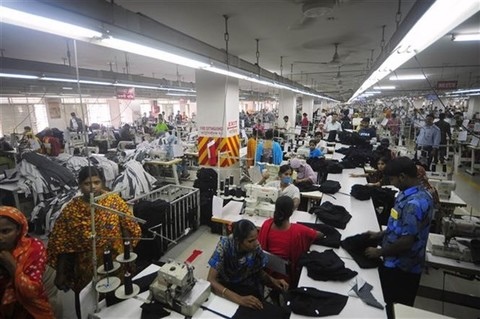
Workers at a garment factory in Ashulia, Bangladesh. — VNA/VNS Photo |
Despite the potential short-term benefits, Vietnamese enterprises are advised to focus on enhancing their competitiveness and pursuing long-term strategies. Unlike Bangladesh, which primarily relies on processing orders for foreign brands and competes on low labour costs, Việt Nam aims to develop a textile industry with higher added value, including fashion and design.
Phạm Văn Việt, Chairman of the Board of Directors at Việt Thắng Jean Co., Ltd., and Vice Chairman of the HCM City Association of Garment, Textile, Embroidery and Knitting, noted that while disruptions in Bangladesh could theoretically benefit Việt Nam, the country's primary goal is not merely to receive additional processing orders. Việt Nam's textile industry is increasingly investing in automation, technology and research and development to create its own brands and target higher market segments.
Before the unrest in Bangladesh, Việt Nam's textile exports were already showing a strong recovery.
In July alone, export turnover reached nearly US$4.3 billion and the cumulative export value for the first seven months of the year was US$23.9 billion, up 5.9 per cent year-on-year. The industry is optimistic about the coming months, with key export markets such as the US, Japan, South Korea and China showing strong growth. The target of US$44 billion in textile exports for this year is within reach and if favourable conditions continue, the figure could rise to US$46 billion.
Most Vietnamese enterprises have secured orders for production through the end of the year, with some already negotiating contracts for the first half of 2025.





